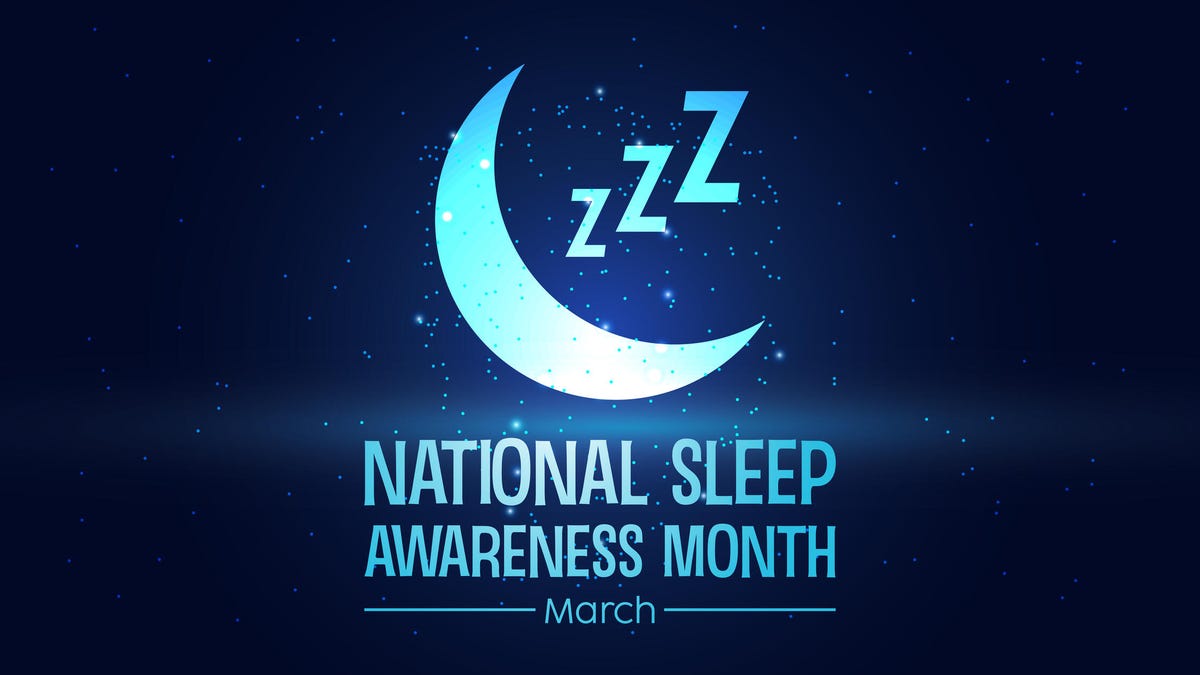Why Sleep Awareness Month Mattered to Me and Why You Should Care, Too
Commentary: Sleep Awareness Month has come to a close. Now's the time to reflect on the importance of sleep.

I've spent this past month reflecting on the role that sleep plays in every aspect of my life and why it's essential to my well-being. The amount and quality of sleep I get each night affects my mood, productivity and more surprisingly, other areas of my wellbeing such as my diet. This isn't true for just me; sleep widely impacts all humans. Here's why everyone should care about their sleep.
My Sleep Awareness Month reflection
This past Sleep Awareness Month, I made it a priority to be conscious of my rest and my overall health. It was during this reflection that I realized how much I take my sleep for granted, mostly because I haven't gotten enough of it throughout my life. I missed out on a lot of sleep as a child and an early teenager due to debilitating anxiety that would keep me awake. While sleep comes easily to me now, I still feel like I'm playing catch-up at times.
I've also noticed that I use sleep as a coping mechanism. This is probably something that I picked up in college, and this habit has bled into my post-grad life. When I'm stressed and overwhelmed, my first thought is to take a quick nap. While there are worse vices out there, I've noticed that my naps can sometimes mess with my sleep at night.
Read more: Best Mattress
Exploring sleep technology
The Eight Sleep Pod 3 Cover generated all kinds of sleep data.
I didn't go through a month-long sleep journey without some help. During Sleep Awareness Month, I got to test out some sleep technology, including the Eight Sleep Pod 3 Cover. The heating and cooling mattress cover tracked my sleep, my sleep quality, my sleep stages, heart rate, heart rate variability, breath rate and sleep latency. In combination with my Garmin Forerunner smartwatch, I compared the sleep data from the mattress pod and concluded some interesting results.
First, I wasn't getting enough deep sleep. Instead of the recommended 1.5 to 2 hours of deep sleep, I was getting around 45 minutes to an hour. Second, I was waking up a lot during the night. I saw in my data that I was waking up three to four times, which was causing my overall sleep quality to decrease. These wake periods were more than a quick toss or turn; I was waking up and not able to go back to sleep right away.
Thankfully, after my month of testing the Eight Sleep Pod concluded, I noticed that my deep sleep increased, and I was waking up less during the night. I believe that this is due to a few things: I was going to bed and waking up around the same time each day, I was exercising during the day (not too close to bedtime) and I was using my Eight Sleep consistently. The Pod mimics the body's natural temperature cycle during the night and helps to adjust you to the optimal degrees. As a hot sleeper, some of my wake periods were due to me sweating under my comforter. The Pod cooled me down, and this most likely helped to increase my sleep quality.
Read more: I Was Always Waking Up Tired. I Used Tech and Science to Sleep Better
Sleep's impact on all aspects of life
Here are a few aspects of life where sleep plays a major role and what I've learned about myself and my rest this past month.
Mental health
My sleep and mental health have always gone hand-in-hand. When I sleep poorly, it seems to decrease my ability to deal with daily stress and increase my anxiety. Studies have shown that mental health and sleep affect one another. While worry and anxiety can keep you awake, about 75% of those with depression also have insomnia and sleep issues. In addition, your circadian rhythm may contribute to your poor mental health. Those with disrupted circadian rhythm also have been reported to have mood disorders, anxiety or schizophrenia.
Nutrition and proper diet
I'm guilty of eating a snack before bed. While some foods contain magnesium -- like nuts -- and can promote sleep, up until this past month, I've chosen poor foods to eat before bed. Eating sugary, fatty or spicy foods before bed can keep you awake. In addition to food affecting your sleep, poor sleep can lead to a slower metabolism. Losing sleep or sleep deprivation can affect your glucose metabolism.
Fitness and exercise
On top of focusing on my sleep, I also spent last month forming a new workout routine. I ran two to three times a week, did some form of cardio for two days and rested the remaining days. Any exercise from yoga, running, dancing or swimming can benefit from a proper night's sleep. On days when I didn't get enough rest, I was too sluggish to push myself to run faster. I also think that my new workout routine helped my sleep quality, as my deep sleep increased. Research shows that exercise can encourage better sleep.
Why Sleep Awareness Month really matters
While Sleep Awareness Month has passed, our appreciation for our bodies, minds and well-being should not. Sleep, a basic body function, touches all aspects of our lives. Without proper sleep, we wouldn't be able to run faster, fuel our bodies better and manage everyday stressors. In matters of our overall health, sleep is not just a building block, it's the foundation.
It's important to note that anytime you have concerns about your health, whether that be sleep, mental or physical health, nutrition or fitness, you should first talk to your doctor. Especially if you have struggled with sleep, speaking to a physician is a great first step towards better rest.

